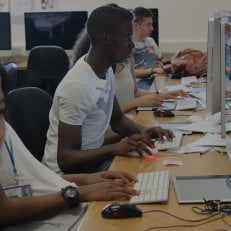How to find a Fundraising Mentor
Whether you are at the start of your fundraising career, or looking to take it up to the next level, finding a mentor can help. The right mentor will support your personal and professional development, as well as helping you build fundraising success for your organisation.
Finding the right mentor takes effort but if you know how to go about it, you could connect with the one who can transform your life. Here are a few tips on how to find a fundraising mentor:
- Consider what you want from a mentor
Be clear on the type of person you want to be your mentor and about how you’d like your mentor to help. As well as relevant skills, expertise and experience, consider their ability to give honest and constructive feedback and enthusiasm to share knowledge.
- Reach out to your network
Start by looking at people in your existing network who have already achieved what you want to achieve. Write a list, then review each one carefully to produce a shortlist of suitable potential mentors. reach out to them, asking if they’d be willing to take you on as a mentee.
- Go to professional events and conferences
Professional events can help you meet fundraisers and charity leaders who have the knowledge, skills, experience, and connections you need. Time at networking can really pay off. Take note of those who match what you are looking for in a mentor, and follow up.
It’s also worth looking at any available opportunities at the Chartered Institute of Fundraising, whether regional or via one of the special interest groups.
- Use Social Media
Social media connects people from all walks of life. That’s what makes it a brilliant tool for finding the right mentor. Consider which platforms to focus on – such as Linked In – and then search for the type of person you are looking for using keywords and hashtags. Engage with them and their content to build a relationship before you approach them to be a mentor.
- Seek a professional
Finding the right mentor is a fantastic opportunity to develop professionally by learning new skills and gaining new perspectives.
At Craigmyle, we can provide mentorship to help you get up to speed quickly in a new role, or ongoing professional development to make sure that your knowledge remains fresh. For those in senior fundraising roles, a Craigmyle Consultant can act as a mentor, providing an external perspective that can help you be more effective in your work and engagement with donors, Trustees and other staff.
Conclusion
No matter where you are in your career, you could benefit from having a mentor.
You now know how to find a fundraising mentor. A few reasons why you must consider finding a mentor include:
- Supporting your progress, for example by avoiding common mistakes and showing you the right steps to take
- Expanding your network, to your mentor but also to their connections
- Enhancing your professional skills through tailored learning and feedback.
Read about how to get the most from your fundraising mentor.
If you need help with your professional development, Craigmyle Fundraising Consultants can help.
We work with a range of charity sectors, providing expertise tailored to each client that draws upon our consultants’ hands-on experience of strategy and implementation, collective team knowledge and our 60-year track record. Contact us today to learn more!





